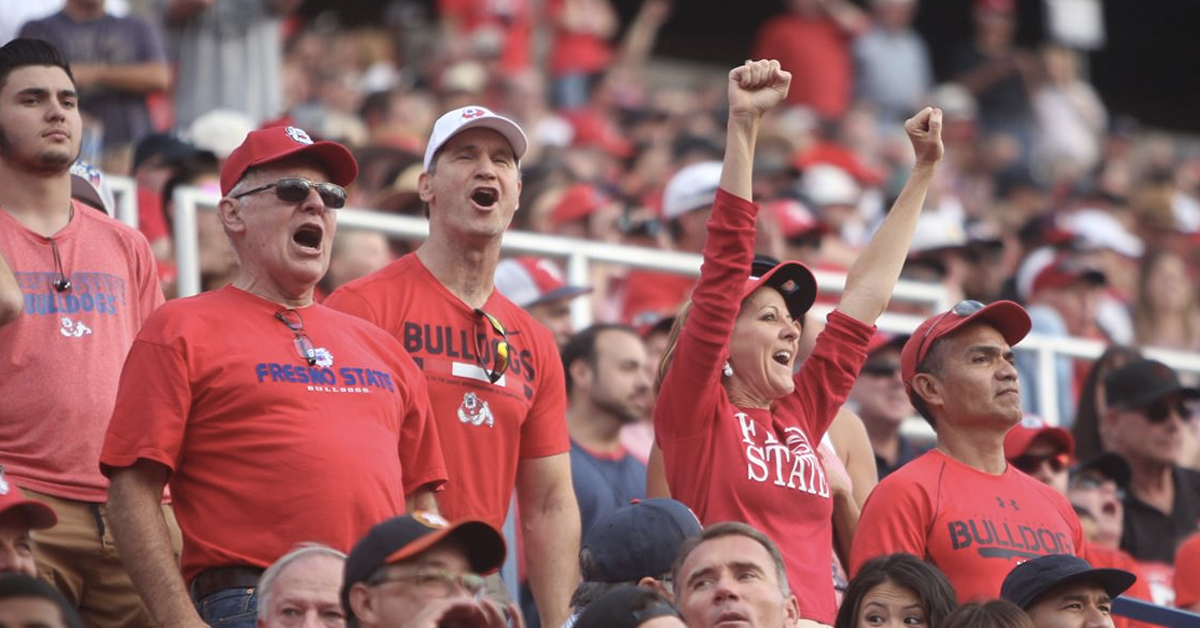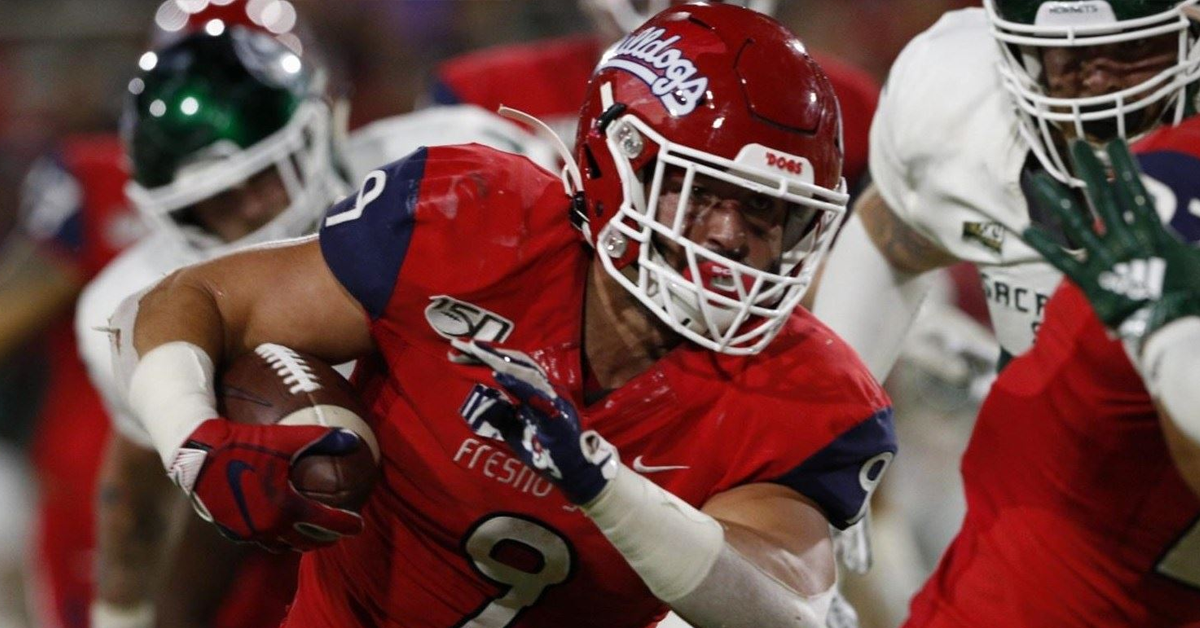Facing an unprecedented, ever-changing situation due to the coronavirus, Fresno State faces a critical financial struggle in losing the lynchpin of its athletics department for a season: the Bulldog football program.
While Fresno State’s gridiron squad, via its bevy of revenue streams and extreme popularity, is the top benefactor to a variety of other athletic programs, a cancelled season could ring up quite a price tag for the university.
Setting aside the vast implications of a cancelled football season on other programs, let’s look at the tip of the iceberg – lost revenues from nonconference games this year.
Nonconference matchups – such those infamous road trips to USC, UCLA, Nebraska, Minnesota, and other far-flung locales – are especially lucrative for mid-major football programs.
Why? Because the hosting university typically pays the visiting football program a financial “guarantee,” ranging from a few hundred thousand to multiple millions of dollars.
Fresno State has two big-time payouts scheduled for the upcoming season.
On Sep. 12, the Bulldogs are set to play Pac-12 opponent Colorado in Boulder, Colo.
The windfall for the Bulldogs for their trip? $600,000.
One month later, on Oct. 10, the Dogs are scheduled to head to SEC country and take on the Aggies of Texas A&M.
On the agenda for Kalen DeBoer and Athletic Director Terry Tumey in College Station? Picking up a $1.3 million payout.
Because of the COVID-19 pandemic, there is a possibility that Fresno State will not be able to play those games and pick up the financial guarantees.
With the California State University system holding classes primarily in a virtual setting in the fall, Fresno State Athletics Director Terry Tumey is working with the Mountain West, the university and the state to figure out if Fresno State can participate in fall sports.
So far, no decisions have been made.
In a teleconference last week, Tumey said that he has been in contact with the athletics directors of Colorado and Texas A&M to share information and discuss what each campus is doing.
“At this point in time, there’s not been a sentiment of – I don’t know how else to say it – desperation as it relates to “Are you going to play or not?’ We have not had that type of interaction, more of an understanding of transparency of where we are and what’s going on at your campus, and we’re asking the same of them at theirs,” Tumey said. “The more we can share information among institutions, the more conducive it is for our possible reentry into what the fall athletic campaign could look like.”
One potential scenario regarding could cause an even greater financial loss for Fresno State, although, given the current atmosphere around college football, it seems unlikely.
What happens if Texas A&M decides to move forward with the season as scheduled and Fresno State chooses – or is forced by the conference or the state – not to?
In the contract between Fresno State and Texas A&M, the universities agreed that neither party will be held responsible if one of the school’s cannot play for reasons such as an act of God, war, riot and work stoppage, among others.
That concept is known as force majeure.
However, if a school commits a material breach and does not play the game, that team in breach would owe the other team $1 million in damages.
The coronavirus pandemic would most likely be considered an act of God, but there is always the unlikely possibility that Texas A&M could pursue damages if the Aggies play their season and the Bulldogs stay home.
In an email to The Sun, Fresno State Senior Associate Athletics Director for External Relations Frank Pucher said the general sentiment across the college football landscape is that universities will not be held financially responsible if that specific situation arises.
“At this time, I’d say everyone’s concern across the country is the health and well-being of students and not on punishing schools financially for determinations that may ultimately be out of all of our control,” Pucher said.
Pucher also noted that the current situation is fluid, so nothing is official at this time
Regardless of if Fresno State could find itself in a battle over the financial damages, there is not much room to spare in the budget to deal with the possibility of losing $1.9 million in game guarantees.
The department’s proposed budget for 2019-2020 set $42,894,400 in total operating revenues and $42,731,050 in total operating expenses, leaving a $163,350 surplus.
That figure is not too far off from where the department has operated with its budget over the years. The department has run a deficit the last two years: underwater by $1,082,043 in 2017-2018 and underwater by $59,100 in 2018-2019.
The department ran surpluses in the two years before that: $1,254,731 in 2015-2016 and $806,192 in 2016-2017.
The university has little wiggle room with in the budget, so missing out on the game guarantees could push the department into the red and lead to negative ramifications.
For now, the Red Wave and university bean counters wait with bated breath to see the plan for Fresno State’s action on the gridiron.











